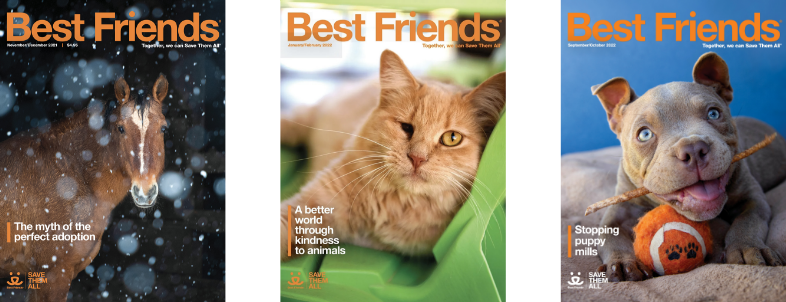Dog who temporarily lost sight has friends to lean on
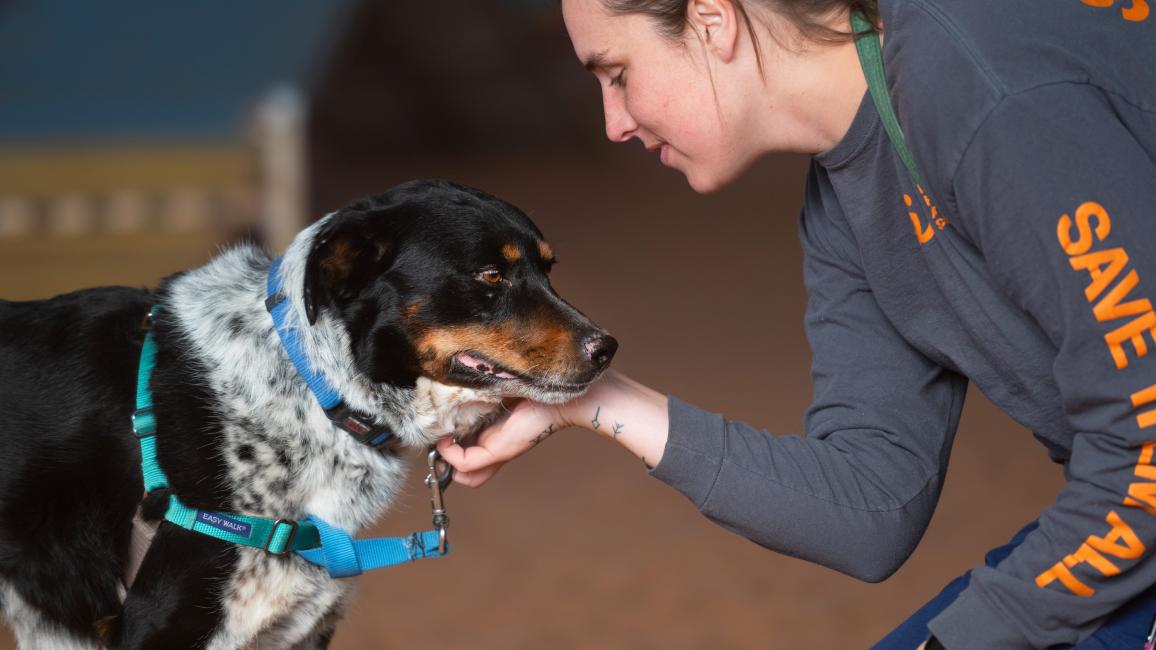
Cash loves spending time with people. He meets new people calmly and easily, he’s the perfect passenger on car rides, he enjoys quiet walks along winding trails, and he would happily play fetch with anyone for hours. He has that go-with-the-flow, gentle personality that makes him easy to hang out with, and he really only has one request: Please, no touching. At least take a dog out for a few treats first.
[How to Help a Dog Sensitive to Touch]
It takes Cash some time to warm up to being petted by people he doesn’t know well. If he sees an unfamiliar hand coming in his direction, he’ll duck out of the way and back off, although it doesn’t take him long to come back and hang out. But when he temporarily lost his vision, he became even more cautious about handling.
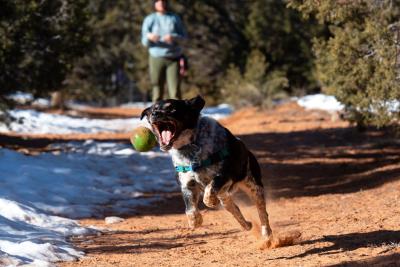
Diagnosis, treatment, and a rare side effect
When Cash arrived at Best Friends Animal Sanctuary, it was with a suggestion from his previous person that he might be experiencing some back pain. But it didn’t take long to realize something more was going on with the speckled fellow. Lesions were forming on his nose, and the skin both on his snout and by his eyes was losing pigment. He also tended to gulp down a lot of water and take frequent potty breaks on his walks.
A biopsy was done on the skin around his nose, and it turned out that Cash had discoid lupus erythematosus (DLE), an autoimmune disorder that causes his immune system to attack a layer of cells in his skin. It was something he would have for his entire life, but with treatment and the right care, it wouldn’t slow him down one bit. After all, it hadn’t stopped him from chasing balls all day, even before his diagnosis.
So veterinarians prescribed him an oil supplement to help bring a healthy sheen back to his skin and fur, along with vitamin B3 and an antibiotic to reduce the inflammation caused by DLE. His caregivers would also need to make sure he wasn’t out in the hot sun for too long, so he got a yard with a nice shady area just outside his room and a larger area that could be closed during the sunniest part of the day.
That setup, for a time, seemed to be working well for Cash. His skin started healing, and he was content to cool off inside or in the shade during his midday sun breaks. He still guzzled down his water bucket every day and adamantly refused to have sunscreen applied to his pale pink nose due to his caution about touch, but he was enjoying himself.
And then, caregivers noticed Cash’s eyes were looking a little cloudy.
“They just kept getting cloudier and cloudier,” recalls Erin Bode, one of Cash’s caregivers. “He wasn’t catching treats; he couldn’t find his ball. … We were so worried.” Within just two weeks Cash’s vision had gone, and even upon close examination veterinarians could find no physical cause for it.
More research found the answer: In very, very rare cases, the antibiotic that Cash was on can cause blindness. But, if discontinued early enough, the blindness can resolve on its own.
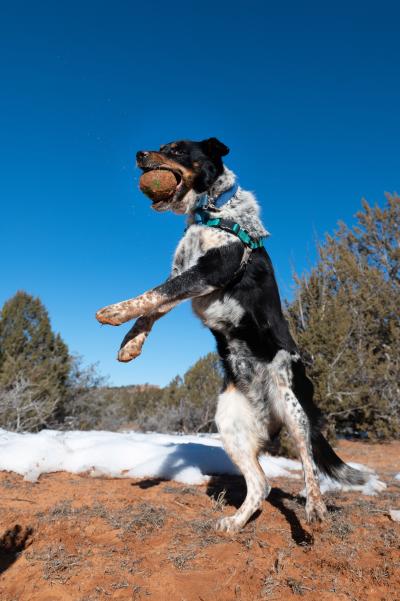
Somebody to lean on
It took about a month after taking Cash off the antibiotic for his vision to clear, and in that time he withdrew. “While he was blind, he did not run into walls or anything like that,” says Erin. “He was very quiet and could not play fetch.”
She says he’d often lean against her for support, despite his usual touch avoidance. She had spent time with him almost every day, so when he needed help, Erin was a safe presence.
But suddenly not being able to see can obviously still be scary. Cash became nervous about having a harness put on and even more uncomfortable being touched by people whose smells and sounds he didn’t recognize. That stuck with him even as the cloudiness left his eyes. But his caregivers knew that with patience they could help him open back up.
[Anxious dog goes home with his kindred spirit]
“The way we are teaching Cash to allow touching is our local volunteers and the newer caregiver are giving him peanut butter and petting his side,” Erin explains. “When the PB stops, then the petting stops.
“I can pet him anywhere; I can do anything to him,” she continues. “But I think it’s because he had to lean on me during that time.” Most of his familiar friends can pet him to an extent. He is still very polite when meeting new people and taking treats from them; it just takes more time and treats to get Cash to that petting point.
He might never be a snuggly pup, but Cash will always be up for some light adventuring or a chill afternoon on the couch — and, eventually, a good scratch behind the ear from the people he’ll call his own.
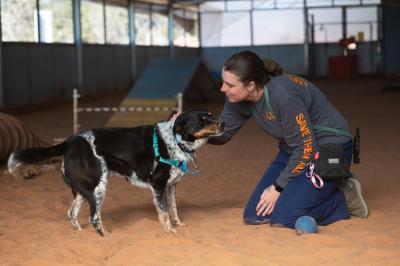
This article was originally published in the July/August 2023 issue of Best Friends magazine. Want more good news? Become a member and get stories like this six times a year.
A little extra time for a whole lot of love
Some pets may be wary or shy, but just give them a chance and they will bring a whole lot of joy to your life, too.
Read more
Scared mama dog transforms into social Butterfly
